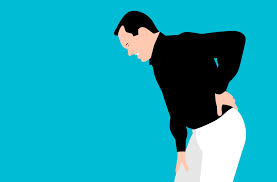Injuries and illness place an enormous burden on business in the UK. According to the HSE, around 38 million working days are lost each year due to ‘work-related illness and workplace injury’, at a cost of around £16 billion. What makes the situation more disagreeable is that certain sorts of business bear this burden more than others; on a construction site or an oil rig, an avoidable accident might put a skilled worker out of action for months – or even longer.
It’s critical, therefore, that steps be taken to anticipate and avoid workplace accidents. Let’s take a look at a few of them.
Identify the risks
Risk assessments should form the bedrock of your health and safety policy. Through them, you’ll be able to discover the potential hazards that are specific to your business, rather than applying ‘one size fits all’ rules. Risk assessments can be performed either by an appointed person, or by an external safety auditor.
Educating the Workforce
The human brain is an extremely powerful piece of safety equipment. It’s able to detect potential hazards, and prevent injuries before they occur. But it can only do this if it’s given the right instructions and education. Regular training sessions, particularly for new inductees, are therefore invaluable.
PPE
Personal protective equipment can minimise the damage that occurs when an accident does happen. Hard hats and facemasks might fall into this category, as might gloves, goggles, protective boots, and full-body hazard suits. The right footwear, for example, might offer protection against dropped objects and slippery hazards.
Cultural Shift
Concern over safety can be contagious. If you can persuade a critical mass of employees to adopt good habits, then you make it easier for the remainder to pick them up, too. If nine out of ten employees take the time to tidy the workplace, then the other one will have a significant social incentive to follow suit.
Minimise Overtime
If you’re constantly short-staffed, then you’ll force workers into exhaustion-inducing hours. This will in turn increase the frequency of mistakes, which will lead to more injury. In the long run, this will mean reduced productivity. Excessive work hours can also lead to poorer-quality sleep, which can inflict health penalties entirely outside of physical injury.
Cut out the Corner-Cutting
Where workers take shortcuts, they often invite disaster. By taking efforts to identify and discourage these behaviours, you’ll reduce their frequency, and thereby make your workplace a safer place.



 Bitcoin
Bitcoin  Ethereum
Ethereum  XRP
XRP  Tether
Tether  Solana
Solana  USDC
USDC  TRON
TRON  Lido Staked Ether
Lido Staked Ether  Cardano
Cardano  Avalanche
Avalanche  Toncoin
Toncoin